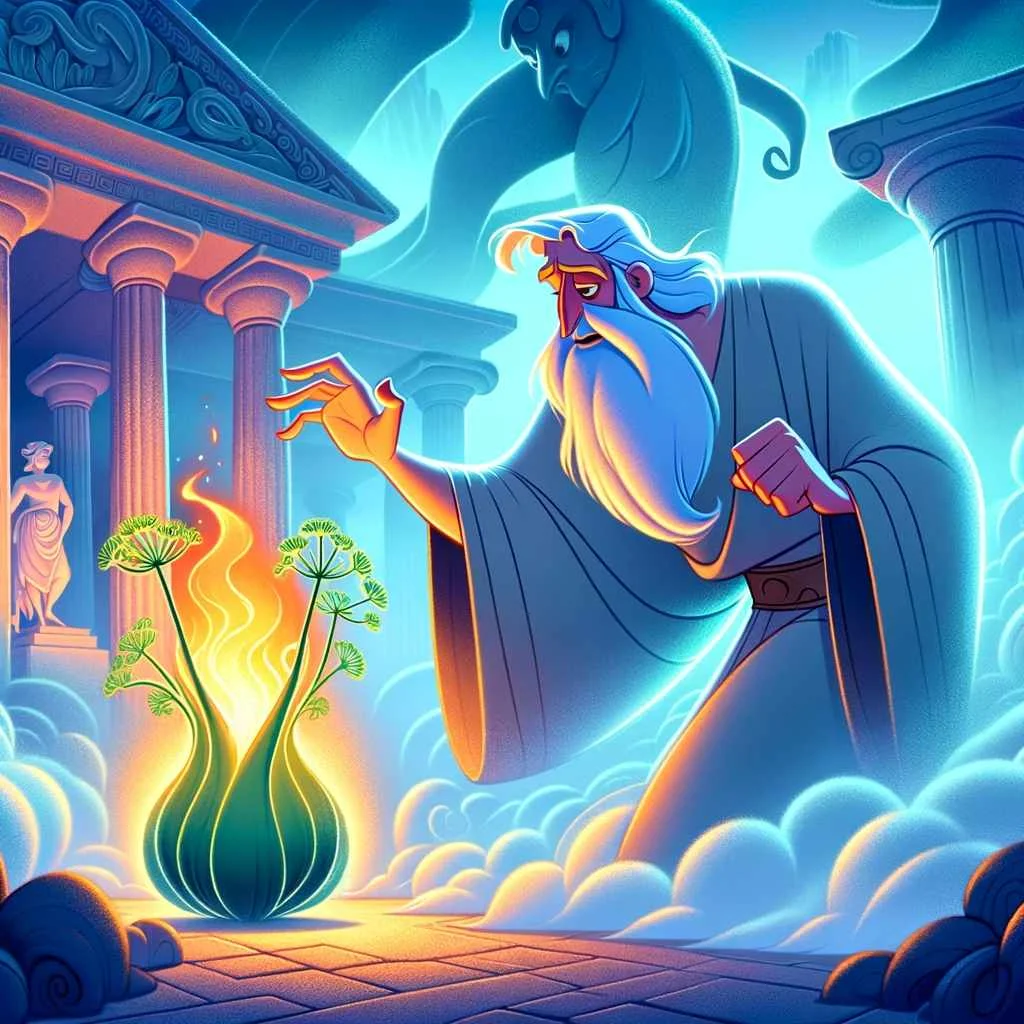In the ethereal mists of ancient Greek mythology, there dwelled a titan unlike any other: Prometheus. Known for his cleverness and deep compassion, Prometheus stood apart from his brethren. He harbored a profound fondness for the nascent race of humans, who, to his distress, struggled against the relentless darkness, bereft of comfort or aid.
The titan, whose name meant “forethought,” possessed the rare gift of foresight. He saw a dire future for humanity, doomed to a bleak existence under the merciless elements, if left unaided.
Concerned for their fate, Prometheus approached Zeus, the omnipotent king of the gods. Zeus had only recently secured his dominion over the cosmos, following a fierce battle with the elder titans.
Prometheus pleaded with him, “Mighty Zeus, grant these fragile beings the gifts of knowledge and the means to craft, that they might not only survive but thrive.”
However, Zeus, still wary from the cosmic upheaval, rebuffed him. “The tools of gods are not for mortal hands,” he declared, fearing that with such power, humans might grow too independent, perhaps even defiant.
Undeterred by Zeus’s refusal, Prometheus’s resolve grew only stronger. Under the veil of night, he ascended to Olympus, the celestial abode of the divine.
There, in the sacred workshop of Hephaestus, the god of fire and craftsmanship, Prometheus executed his daring plan. He stealthily seized the fire, encapsulating its blazing essence within the hollow of a fennel stalk.
With this stolen fire, Prometheus descended to Earth, bestowing it upon humanity. This gift was transformative: humans learned to forge metal, cook their food, warm their dwellings, and dispel the oppressive darkness.
For the first time, they felt a semblance of control over their world, a whisper of divinity.
Zeus’s discovery of the theft was swift and his wrath, formidable. In retribution, he decreed a cruel fate for Prometheus. “For your transgression, you shall endure eternal torment,” Zeus thundered. Prometheus was bound to a distant mountain peak, where each day an eagle—Zeus’s symbol of sovereign authority—would feast upon his regenerating liver.
Despite the horrific punishment, Prometheus bore his suffering with a stoic grace, comforted by the knowledge that his act had irreversibly altered the destiny of mankind. He became a symbol of resistance against tyranny and a beacon of hope and progress in the hearts of humans.
Prometheus’s story weaves a poignant narrative through the tapestry of Greek mythology, highlighting the eternal conflict between power and enlightenment, the profound pain of sacrifice, and the indomitable strength of compassion.
It invites us to reflect on the cost of our advancements and the weight of gratitude we owe to those who empower us with knowledge. Through this myth, the ancient Greeks explored the limits of human potential and the impactful legacy of altruism amidst divine retribution.
Also Read: The Greek Myth of Hermes
Follow Up Questions
- Why do you think Prometheus decided to give fire to humans, even though he knew it might get him in trouble?
- How do you think the fire changed the lives of humans in the story?
- If you were Prometheus, would you have made the same choice? Why or why not?

